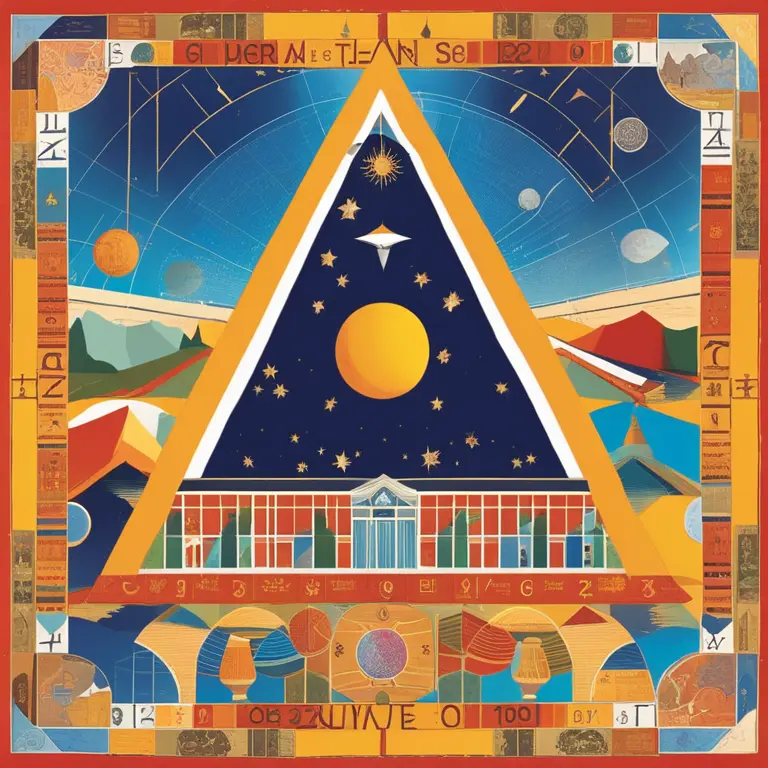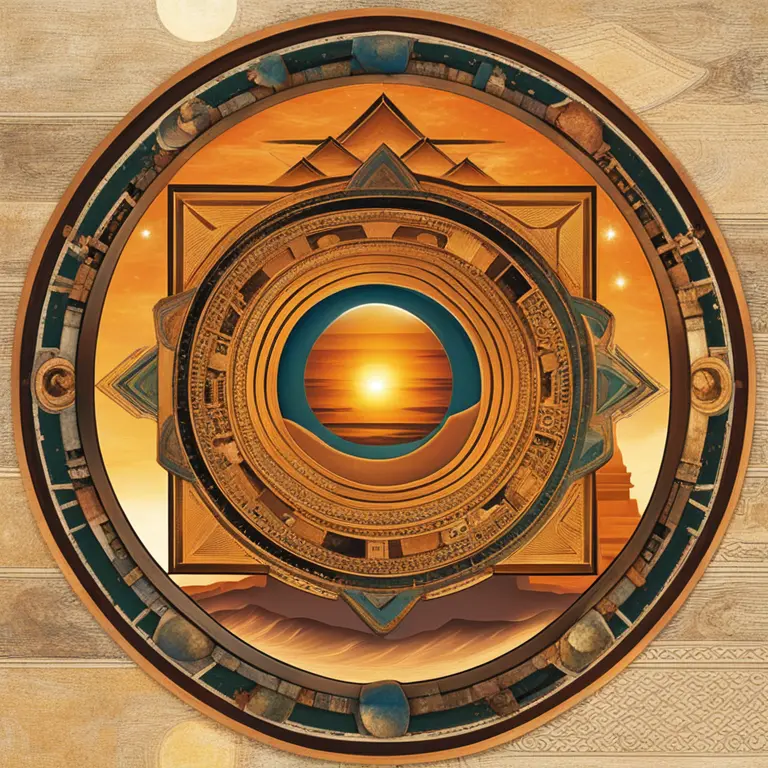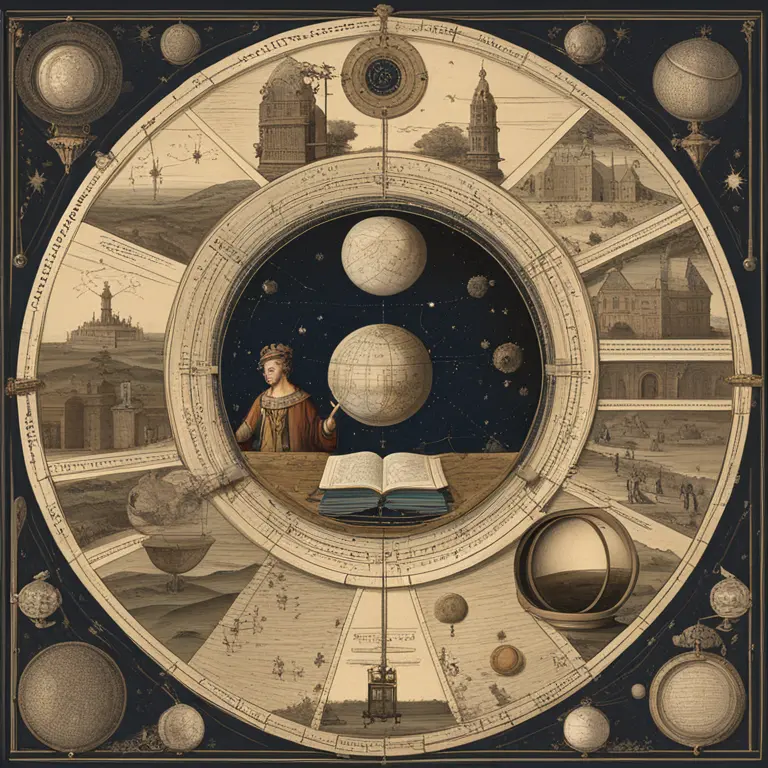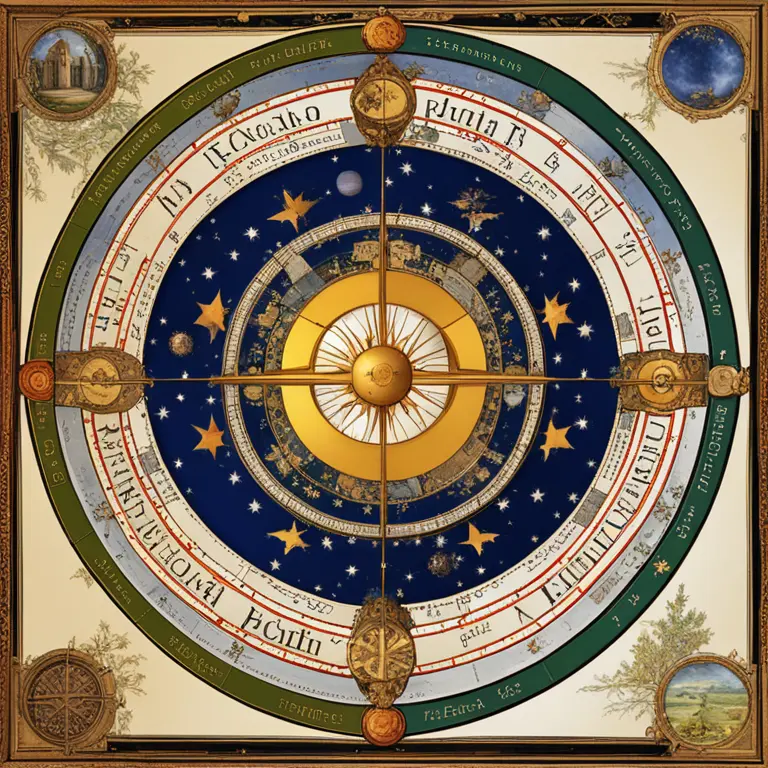
The Dawn of Astrology: A Historical Synopsis
Trace the origins of astrology in this brief exploration of its ancient beginnings and evolution through the ages.
article by Priya Deshmukh
The Ancient Beginnings
Astrology's roots can be traced back to several ancient civilizations, each with its own methodology for divining information from the heavens. The Babylonians are credited with the earliest systematic practice of astrology as far back as the second millennium BCE. They developed the zodiac—a celestial coordinate system that partitions the sky into twelve equal parts, each named after the constellations they observed. These ancient stargazers believed that celestial events directly influenced life on Earth and recorded their observations with remarkable precision.

Evolution Across Cultures
Astrology's influence wasn't confined to Babylonia; it spread to neighboring cultures, including Egypt, Greece, and eventually Rome. The Egyptians aligned their pyramids with the stars and created detailed star charts. The Greeks further refined astrological practice, with notable figures like Ptolemy authoring influential texts that integrated astrology with the natural philosophy of the time. In Rome, astrology was intertwined with state affairs, and emperors often consulted astrologers for guidance.

The Medieval and Renaissance Astrology
During the Middle Ages and the Renaissance, astrology found a place within the Islamic world and Europe. Islamic scholars preserved classical texts and made significant advancements in astronomy, which benefited astrological practice. Astrology in medieval Europe was a complex blend of science, magic, and philosophy. It was at this time that astrology began splitting into two distinct branches: the more scientific astronomy and the interpretative astrology.

The Scientific Revolution and Astrology
The Scientific Revolution of the 16th and 17th centuries caused a major shift in the perception of astrology. As the empirical method took hold and astronomy established itself as a science based on quantifiable evidence, astrology's standing as a scholarly pursuit began to decline. However, it persisted through almanacs and continued to be a popular interest, albeit more in the realm of personal guidance than scientific inquiry.

The Modern Astrological Practice
In modern times, particularly from the 20th century onward, astrology has experienced a resurgence. The psychological astrology of the late 20th century, which interprets celestial patterns as indicative of personality or life events, has kept the practice current. Online platforms and apps have made astrological readings more accessible than ever, and many now seek astrological advice for self-understanding and to navigate the complexities of life.
Astrology in the Digital Age
The digital age has seen an explosion of interest in astrological services, with websites and mobile apps catering to daily horoscopes, compatibility charts, and personalized readings. As we move further into the 21st century, astrology continues to adapt, incorporating technological advancements and expanding its reach through social media, making ancient wisdom available at the touch of a button.
Published: 1/12/2024
Modified: 1/12/2024
More predictions
Come back here soon to learn more about yourself and your future


A Deep Dive Into Astrology Charts
Embark on a journey to discern the precision of astrology charts and what makes them resonate with so many people around the world.


The Connection Between Astrology and Astronomy
Discover how astrology and astronomy share a historical background yet diverge in their modern-day applications and beliefs.


The Truth About Astrology Predictions
Are astrology predictions a guide to the future or mere coincidences? Dive into the reality of astrological insights in the modern world.